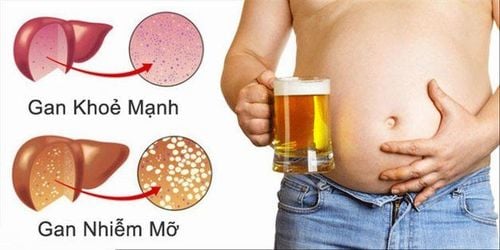By Dr. Mai Vien Phuong, MSc. - Gastroenterologist - Department of Examination & Internal Medicine - Vinmec Central Park International General Hospital.
To lose weight successfully, you need to reduce the number of calories you consume each day. However, dieting often leads to increased appetite and hunger. This makes it difficult to lose weight. Here is a list of 18 science-based ways to reduce appetite for healthy weight loss.
1. Eat enough protein
Protein can increase feelings of fullness, causing you to eat less at your next meal, thereby helping you lose weight. For example, one weight loss study compared two breakfasts that were identical in calories: One consisted of eggs, the other of bagels.
Participants who ate eggs for breakfast lost 65% more weight and 16% more body fat over the 8-week study period.
Getting enough protein in your diet can help promote weight loss, in part by reducing your appetite. In particular, high protein intake can help prevent muscle loss when reducing daily calories for weight loss.
2. Choosing foods rich in fiber is a way to reduce appetite
Intake of a lot of fiber will stretch the stomach, slow the rate of emptying and affect the release of satiety hormones. Therefore, adding foods rich in fiber is a way to reduce appetite. In addition, fiber can ferment in the intestine, creating short-chain fatty acids and promoting feelings of fullness.
Fiber-rich foods include: Peas, chickpeas and lentils; whole grains; fruits, vegetables and nuts.
3. Choose solids over liquids
Solid calories and liquid calories can affect appetite differently. A recent review found that, compared to solid snacks, people who ate liquid snacks were 38% less likely to compensate by eating less at their next meal.
In a second study, participants who were given a semi-solid snack reported less hunger and less desire to eat than those who ate a liquid snack.
Solids require more chewing, which may provide more time for satiety signals to reach the brain. Scientists also believe that more chewing time allows solids to stay in contact with the taste buds for longer, which may also promote feelings of fullness.
4. Drinking Coffee as a Hunger Suppressant
Reducing hunger with coffee has many benefits for health and sports performance. Research shows that coffee increases the release of peptide YY (PYY). This hormone is produced in the gut in response to eating and promotes feelings of fullness.
Scientists believe that PYY levels play a role in determining how much you can eat. However, more research is needed to determine exactly how this works.

5. Drink more water
Drinking water is a way to reduce appetite before meals, thereby promoting weight loss. In fact, studies show that people who drink two cups of water right before meals eat 22% less than those who do not drink any water.
Scientists believe that about 17 oz (500 ml) of water is enough to fill the stomach and send a signal of fullness to the brain. Similarly, researchers observed that eating a bowl of soup right before a meal reduces hunger and reduces the total calorie intake from the meal by about 100 calories.
6. Eat slowly and chew thoroughly
Under normal conditions, the brain will tell you whether you are hungry or full. If you eat quickly or are distracted, it can make it harder for your brain to recognize this signal.
So, during the meal, you should not do anything other than eat, including watching TV or using your phone; always eat slowly and chew thoroughly to reduce binge eating behavior.
Mindful eating has been shown to reduce appetite and increase feelings of fullness. It can also reduce calorie intake and help prevent binge eating.
7. Enjoy dark chocolate
Dark chocolate can help reduce appetite. In particular, the stearic acid in dark chocolate can help slow down digestion, increasing feelings of fullness.
One study observed that simply smelling 85% dark chocolate reduced both appetite and stimulated hunger factors just like when actually eating it.
However, further research is needed to examine the effects of dark chocolate on feelings of fullness.
8. Eat some ginger
Ginger has many health benefits, reducing nausea, muscle pain, inflammation and especially reducing hunger. One study found that consuming 2 grams of ginger powder diluted in hot water at breakfast reduced hunger.
However, this study was small and more research in humans is needed before any definitive conclusions can be drawn.
9. Spice Up Your Meals as a Way to Reduce Appetite
A recent review examined the effects of capsaicin, found in hot peppers, and capsiate, found in sweet peppers. They found that these compounds may help reduce hunger and increase feelings of fullness.
Furthermore, the thermogenic properties of these compounds may also increase the number of calories burned after a meal.
However, these effects have not been seen in all studies and are still small. Additionally, people who eat these foods regularly may develop a tolerance to the effects.
10. Eat on a Smaller Plate
Reducing the size of your serving utensils may help you reduce your meal portion size, consuming less food. Therefore, eating from smaller plates may help you unconsciously eat less without increasing your hunger.

11. Use a larger fork
The size of your eating utensils can significantly affect how much food you need to feel full. One study observed that people who used larger forks ate 10% less than those who used smaller forks.
The researchers speculate that smaller forks may make people feel that they are not satisfying their hunger. Note that this effect does not appear to apply to the size of all utensils. Larger spoons can increase the amount of food eaten at a meal by up to 14.5%.
12. Exercise
Exercise is thought to reduce the activation of areas of the brain associated with appetite, which may lead to lower motivation to eat.
Exercise also helps reduce hunger hormone levels, increasing feelings of fullness. Research shows that aerobic and resistance exercise are equally effective at affecting hormone levels and post-exercise meal size.
13. Lose Body Fat Around Your Waist
Neuropeptide Y (NPY) is a hormone that affects appetite and energy balance in the body.
Higher-than-normal levels of NPY increase appetite and even change the proportion of calories stored as fat. However, researchers have found that body fat can increase NPY production. Therefore, losing weight around your waist can help reduce your appetite and feelings of hunger.
14. Get enough sleep
Getting enough sleep is also a way to reduce appetite and prevent weight gain. Studies show that too little sleep can increase hunger and appetite by up to 24% while reducing levels of certain satiety hormones by up to 26%.
Research also shows that people who sleep less than seven hours per night rate their fullness after breakfast as 26% lower.
It’s worth noting that some studies have also linked short sleep, typically defined as less than six hours per night, to a 55% higher risk of obesity.
15. Reduce your stress
Excessive stress is known to increase levels of the hormone cortisol. While the effects can vary between individuals, high cortisol is generally thought to increase appetite.
So finding ways to reduce stress can help curb hunger and reduce the risk of obesity and depression.

16. Eat Omega-3 Fats
Omega-3 fats, especially those found in fish oil and algae, have the potential to increase levels of the satiety hormone leptin.
So far, these effects have only been observed in overweight and obese participants. Further research is needed to see if the same holds in lean people.
17. Choose high-protein snacks
Snack-eating is a matter of personal choice. If it is part of your daily routine, you may want to choose high-protein snacks instead of high-fat ones.
High-protein snacks can increase feelings of fullness and reduce total calorie intake at the next meal. For example, a high-protein yogurt is more effective at reducing hunger than a high-fat cracker or a high-fat chocolate snack.
Eating protein-rich yogurt in the afternoon can also help you eat about 100 fewer calories at dinner, compared to the other two options.
18. Visualize eating the foods you crave
According to some researchers, visualizing yourself enjoying the foods you crave the most can actually reduce your desire to eat them.
Visualization exercises can trick your mind into eating the foods you want, thereby significantly reducing your appetite.
In short, hunger is an important and natural signal that should not be ignored. The above methods are just some simple ways to reduce appetite and hunger between meals. If you have tried these methods but still find yourself feeling excessively hungry, consider talking to a healthcare professional about your options.
To arrange an appointment, please call HOTLINE or make your reservation directly HERE. You may also download the MyVinmec app to schedule appointments faster and manage your reservations more conveniently.














